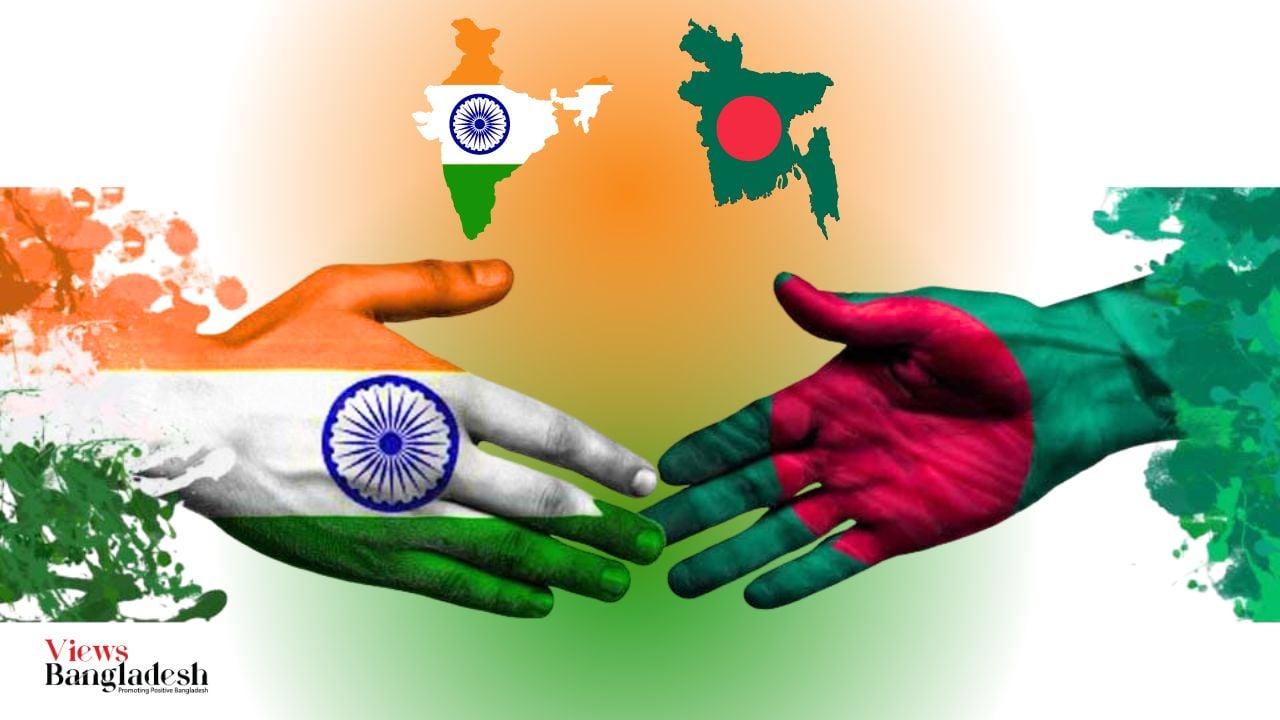Bangladesh-India Relations
Not Zero-Sum, Mutually Beneficial Approach will Be Key

The run-up to the Bangladesh national elections of January 7 were politically nerve wrecking for many stakeholders, as it seemed that the national elections of the country had seemingly become a high-stakes competition for global and regional politics. Stakes may not be so high, but the competition factor is a definite phenomenon that has been ongoing within and regarding Bangladesh for some time now. Whether it be termed from the purview of India’s buffer state priorities to BRI of China; from US strategic priorities of containing China to globally isolating Russia that has infrastructure interests in Bangladesh and has become an overt political advocate for Bangladesh recently. The added caveat or concern for many are the accusations of authoritarianism, totalitarian, and suppression of political rivals, withing which PM Hasina has returned to office for the fourth term.
As tensions are now declining with the new government and its cabinet members taking the helm of their respective duties, the west is moving forward focused on maintain working relationship with the new Bangladesh Government, as was made evident through post election statements. While the west’s approach to the new Bangladesh Government is slow and prudent, Awami League and PM Hasina’s close allies’ approach in congratulating the regime continuation has been overwhelming. One prime and foremost example is that of India.
Indian High Commissioner to Bangladesh Pranay Verma met FM Hasan Mahmud and extended an invitation on behalf of the Indian External Affairs Minister for the FM to visit India. The Foreign Minister accepted the invitation and told him that he would visit Delhi soon. The meeting with the Indian High Commissioner in Dhaka marked Hasan Mahmud’s first diplomatic engagement since assuming the office of foreign minister. At the same time, FM Mahmud will be beginning his bilateral visit series with India on February 7 to further strengthen India- Bangladesh relations.
India’s influence on the politics, and/or the political psyche of Bangladesh is undeniable. On top of that, the enhanced relations the two neighbors have developed and enjoyed during PM Hasina’s rule is irrefutable. Moreover, PM Hasina and her government has addressed India's security concerns, particularly access to northeastern India, through connectivity projects and action against anti-India insurgent groups. In return, India has steadfastly supported the AL government, to the point of overlooking democratic setbacks in Bangladesh, according to many experts of both India and Bangladesh, and even Indian media analyses.
While there are some media outlets, experts on both sides of the border who raise questions or insinuate that the latest cabinet lacks the pro-Indian faces, FM Mahmud beginning his stint as the FM with and from India is clear indication to the contrary.
Bilateral trade between India and Bangladesh exceeded $15 billion in 2021-22. Bangladesh remains a regional priority ally for Delhi as it considers Bangladesh an essential buffer state for India’s Look East and Act East policy. India and Bangladesh share historical ties that are embedded in the very formation of Bangladesh; a historical legacy that will be and needs to be acknowledged irrespective of any situation that may nor not prevail in the bilateral relations.
The strong and reliable partner that Bangladesh has become is a clear political function of PM Hasina’s leadership, given that anti-India sentiments are at their highest, and similar trend is noticed not only in Bangladesh, but also in the region. Maldives’ internal politics has recently been reverberating with India Out slogans, a chant that is evidently now picked up by the political opposition BNP in Bangladesh. Social media of pro-BNP activists, leaders, and patrons are reportedly trending with such narrative. For some this is a desperate move by the opposition, while for others this may be the public discourse that the political opposition finally finds its foothold. Only time will tell. However, given the Maldives experience, Delhi and those following the trend would naturally want an ally in the helm of Bangladesh leadership that Delhi can rely upon. PM Hasina and her party have proved that time and again. Undoubtedly, FM Mahmud would reiterate the same commitment to India during his first bilateral visit as FM.
Other Indian concerns include excessive alignment with China, a regional competitor of India. Both India and China have invested heavily in Bangladesh, both political and economically. PM Hasina’s key success in her diplomacy and geopolitical strategy has been to manage the partnership expectations from the two Asian giants. She has been adept and demonstrated exemplary providence in maintaining these competing interests irrespective of whether they collided on actual issues or not.
Bangladesh’s trade with China exceeded $25 billion in 2022. Bangladesh aligns strategically with China; Beijing is instrumental in supporting Bangladesh’s economic growth through investments made in infrastructure projects under China’s BRI. So, partnership with China is as crucial if not more for Bangladesh as is with India. PM Hasina has been able to make both these regional giants realize this reality whenever tensions have peaked about Bangladesh’s alignment.
Bangladesh’s nuanced approach towards India and China reflects the prioritizing of mutually beneficial relationships aligning with national interests over zero-sum strategic affairs. FM Mahmud during his visit, and PM Hasina during the course of her next five-year regime will dexterously affirm that same to both India and China respectively. Delhi has to realize that maintaining strategic and mutually beneficial relationships is a key tenet of Bangladesh’s foreign policy. Bangladesh under the AL regime has focused on geopolitics based on national interests over zero-sum strategic affairs. PM Hasina has been quite adept in handling of multiple partnerships has been adept, and it is now the core of Bangladesh’s not only foreign policy but also geopolitical exercise to maintain a strategic autonomy doctrine. Both India and China would be at ease and relations with them would move ahead smoothly without hiccups, if both Beijing and Delhi keep this in mind, as this will be key principle for Bangladesh going forward.
Author: Political and International Affairs Analyst


Leave A Comment
You need login first to leave a comment